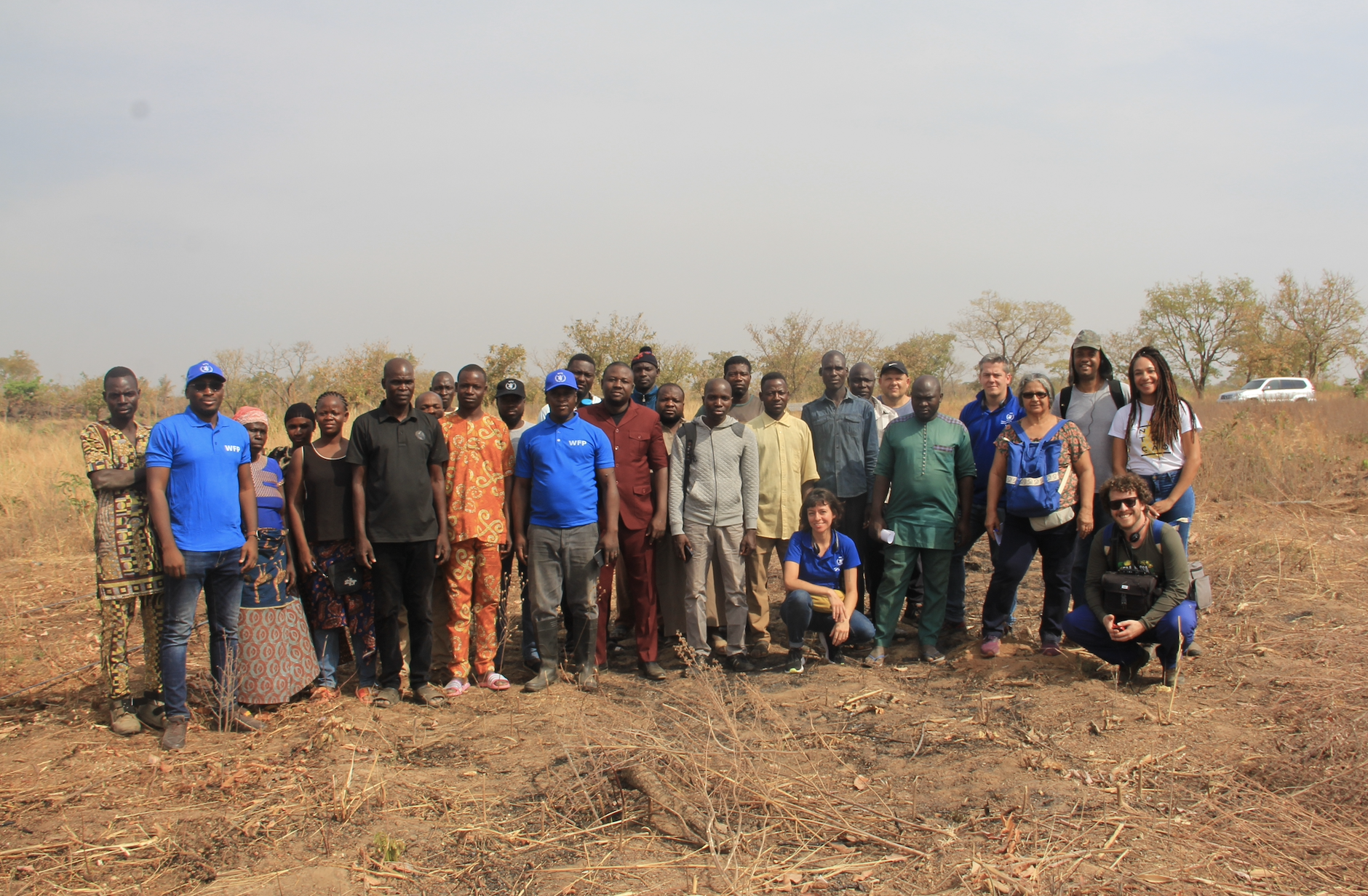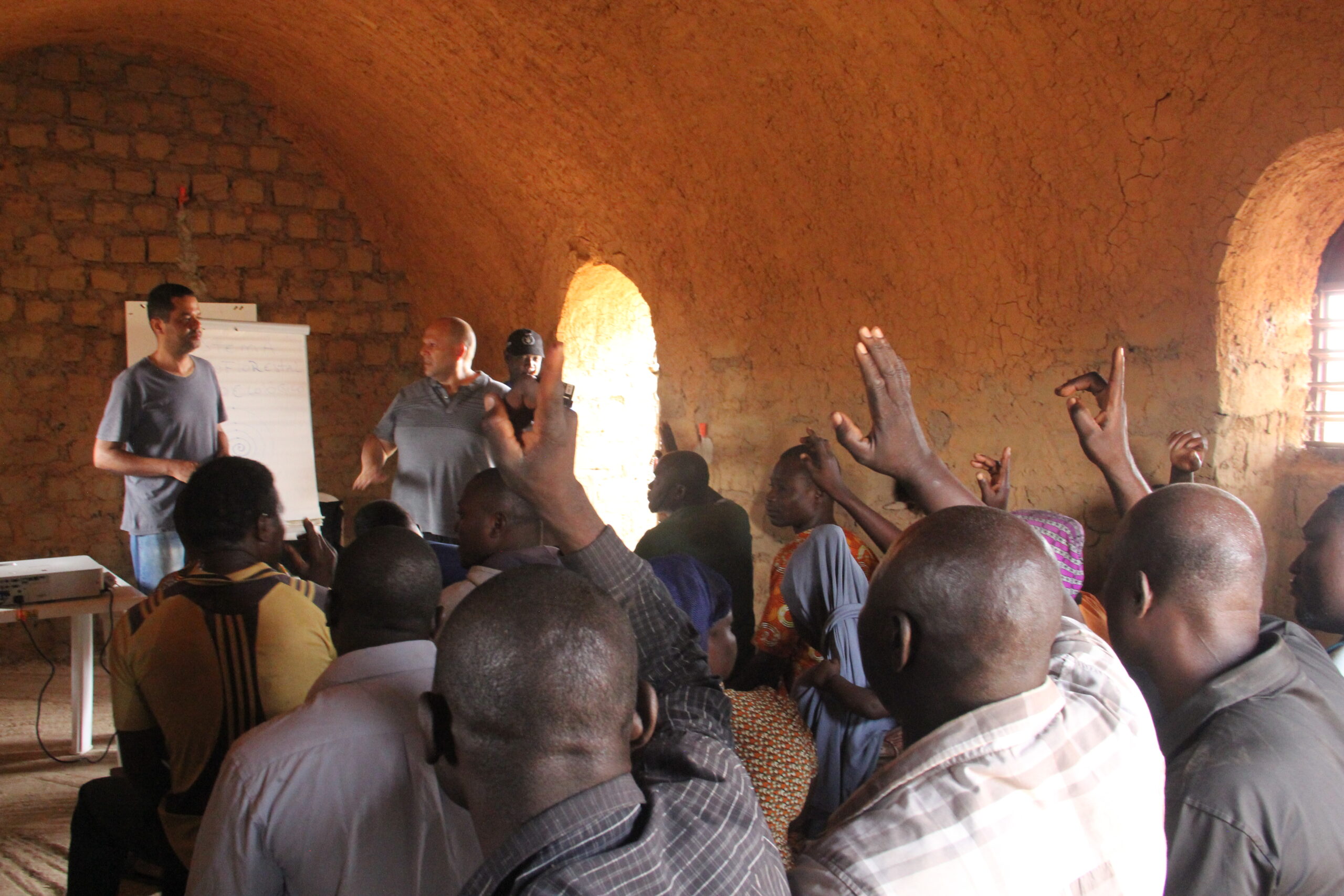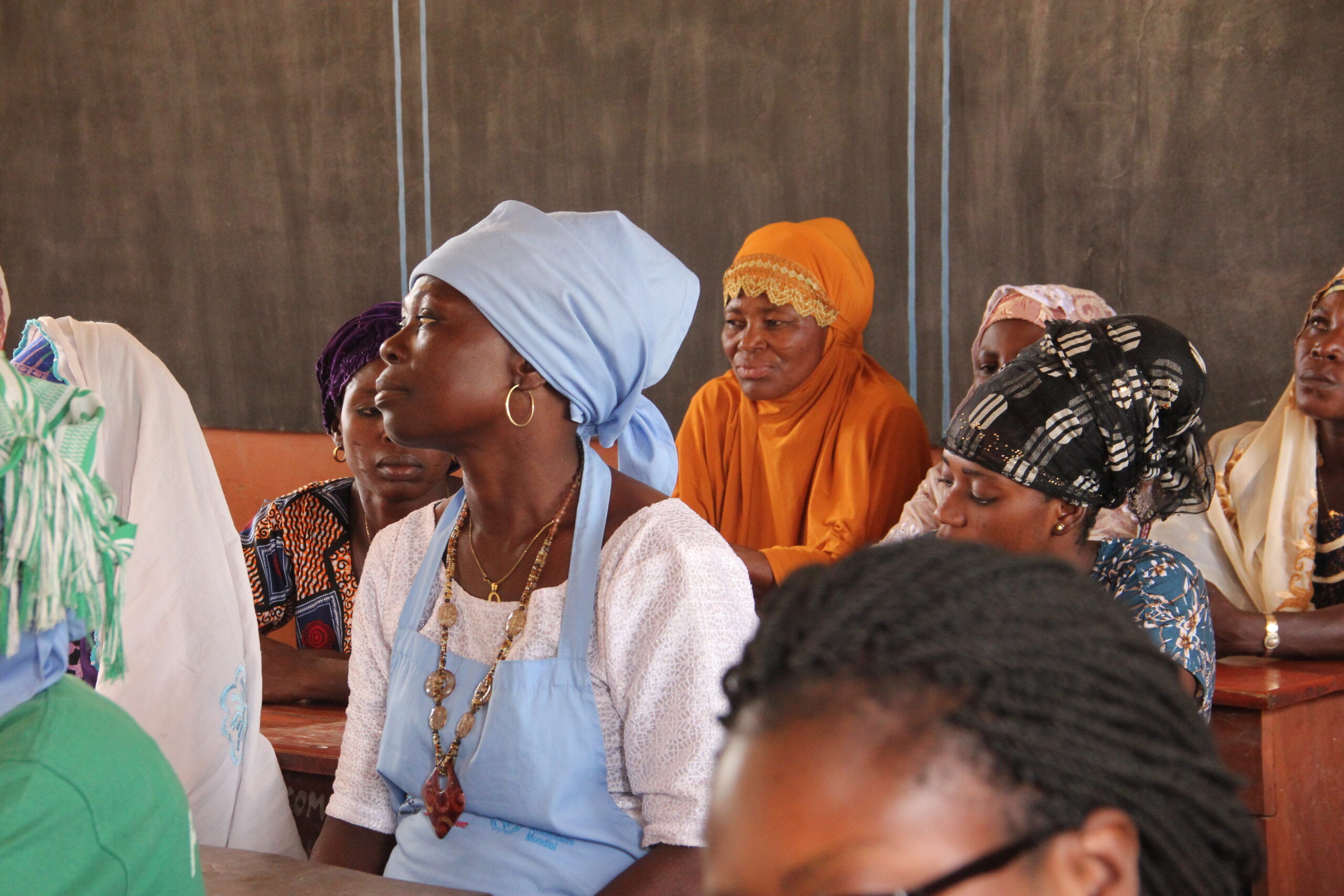
The technical team of the Beyond Cotton Project, of the World Food Programme (WFP) Centre of Excellence against Hunger Brazil, alongside the Brazilian government, represented by the Federal University of Western Bahia (UFOB), went on a field mission to Benin between 6 and 10 February. The mission goal was to support cotton and food producers by promoting training to diversify the planting of nutritious food and best practices of hygiene and food preparation, in addition to carrying out actions aimed at food and nutrition security. The activities took place in the city of Copargo and were supported by the WFP country office in Benin and the country’s Ministry of Agriculture, Fisheries and Livestock.
The work developed by the mission team included several training courses to promote sustainable agriculture, food security and healthy nutrition. Led by Professor Mario Alberto dos Santos (UFOB), the workshop on Agroecological Agroforestry Systems (SAFA) took place in the community field of Goumouhou and consisted of a study with technicians and representatives of cooperatives on good practices in food cultivation. In this phase, there were two days of theoretical training on the subject and discussion about fertilization, planting of fruit trees, pruning and maintenance of a biodiverse cultivation system. On the third day there was practical training with the installation of a demonstrative SAFA plot and the associated planting of corn, millet, mango, lemon and papaya.
In addition, a low-cost irrigation system was installed in the training area, which uses a black canvas liner and PVC pipes, which allows it to retain more water during periods of scarce rainfall and is recommended for growing vegetables. The workshop was attended by about 30 people, including farmers, technicians, students and representatives of local communities.

UFOB professor Débora Porcino led a workshop on food groups at the Kpandri school. The training focused on characteristics of food groups and the availability of nutrients, as well as arrangements that can be made to compose a nutritionally adequate meals, according to seasonality. After a survey during the workshop, the most consumed food by the school public, which can be grown in school gardens to complement the meals, included tomatoes, onions, okra, garlic, moringa and spices. The Project proposes these gardens as an alternative to enrich school meals with fresh food. For practical learning, a low-cost irrigation demonstration was installed in the school garden where the training took place. Approximately 30 people participated in the activity, including cooks, NGO animators and food safety technicians responsible for monitoring and organising the supply of food in schools.
In addition to the workshops, the Beyond Cotton team met with farmers and technicians from local cooperatives that sell food directly to the WFP, a milestone of innovation achieved by the Brazil – Beyond Cotton cooperation project. The WFP, together with the Ministry of Agriculture, Fisheries and Livestock of Benin leads the country’s school feeding programme and is introducing direct purchases from family farmers, through the Beyond Cotton Project.
On that occasion, the potential existing in the expansion of the food basket purchased under the National School Feeding Programme was discussed, such as the introduction of vegetables, soy products, fruits like cashew, among others. In addition, food storage, availability of water for production, logistics of delivery to schools, pricing and possibilities of diversification of food supply in institutional markets were discussed.

At the end of the mission, the Brazilian delegation met with the Brazilian ambassador in Benin, Regina Célia de Oliveira Bittencourt. At the time, they discussed the technical agenda conducted during the mission and the strengths of the Beyond Cotton project in the country, such as capacity building of farmers and knowledge exchange, using Brazilian expertise in the implementation of local purchases for institutional programmes based on the constant dialogue between agriculture, nutrition and technical assistance. The meeting was also important to align Brazil’s strategies in the country, and thus reinforce the Brazilian government’s commitment to the execution of the project.
The Beyond Cotton Project is a joint initiative of the WFP Centre of Excellence against Hunger and the Brazilian Government, through the Brazilian Cooperation Agency (ABC) and the Federal University of Western Bahia (UFOB), with financial support from the Brazilian Cotton Institute (IBA).




